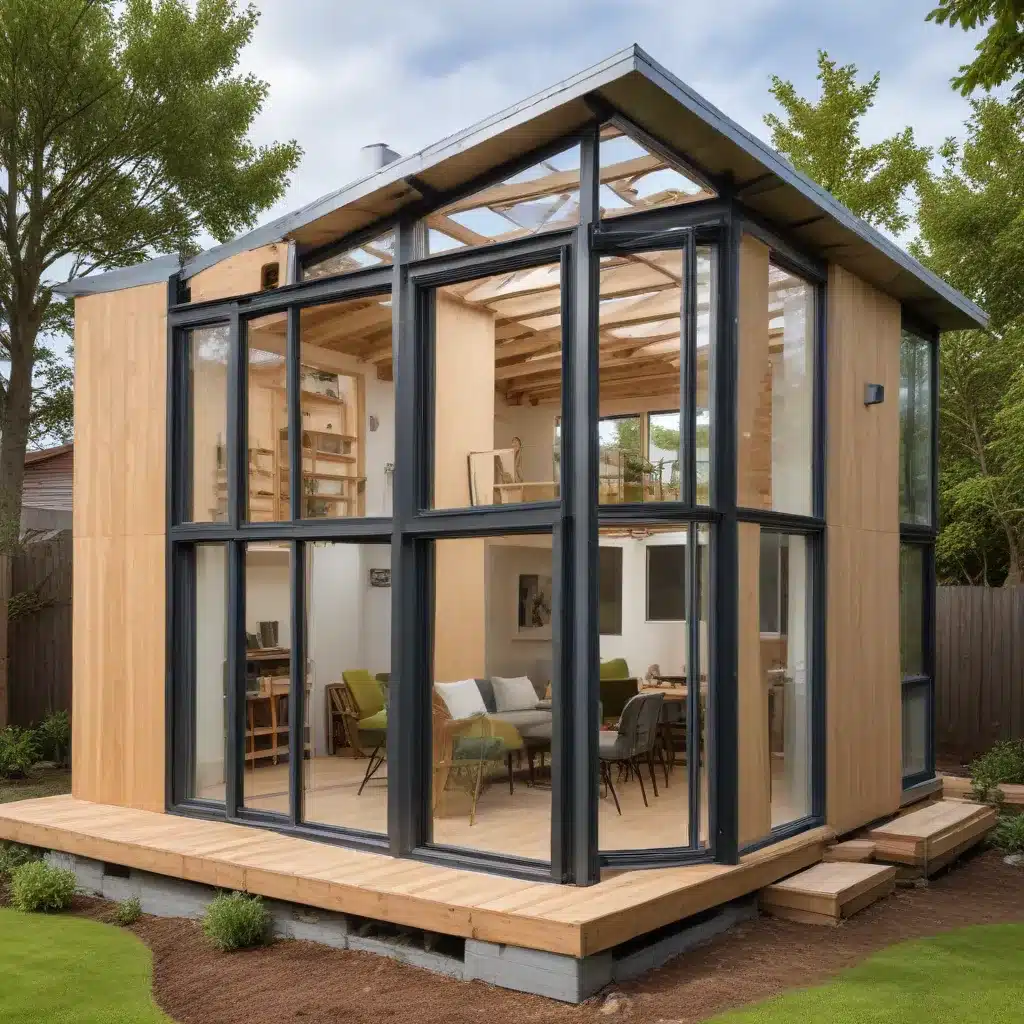
As an experienced home extension consultant, I’m excited to share my insights on how you can create sustainable, modular, and scalable home extensions. In today’s world, it’s crucial to consider the environmental impact of our homes and embrace innovative solutions that promote long-term sustainability.
Sustainable Building Principles
When it comes to home extensions, sustainable building principles should be at the forefront of your design. Let’s explore three key areas to focus on:
Energy Efficiency
Energy efficiency is the foundation of a sustainable home. By incorporating strategies like high-performance insulation, energy-efficient windows and doors, and LED lighting, you can significantly reduce your energy consumption and lower your utility bills. Designing for passive solar gain, natural ventilation, and strategic window placement can also minimize the need for artificial heating and cooling.
Renewable Energy Integration
Integrating renewable energy sources, such as solar photovoltaic (PV) panels or small-scale wind turbines, can help offset your home’s energy usage and reduce its carbon footprint. These systems not only contribute to sustainability but can also provide long-term cost savings.
Water Conservation
Water conservation is another crucial aspect of sustainable home design. Incorporating water-efficient fixtures, rainwater harvesting systems, and greywater recycling can dramatically reduce your home’s water consumption and promote responsible water management.
Modular Building Approaches
Modular construction techniques offer a sustainable and scalable solution for home extensions. By utilizing prefabricated components manufactured in a controlled factory environment, you can streamline the construction process, reduce waste, and ensure a higher level of precision.
Prefabricated Components
Modular home extensions are built using factory-made components, such as wall panels, roof trusses, and even entire room modules. These components can be constructed using sustainable materials like recycled steel, bamboo, or reclaimed wood, further enhancing the environmental credentials of your project.
Flexible Design Configurations
Modular construction allows for a high degree of design flexibility. You can choose from a variety of layouts, room configurations, and finishes to create a home extension that perfectly suits your needs and preferences. This adaptability ensures that your investment can grow and evolve with your family’s changing requirements.
Scalable Construction
One of the key advantages of modular construction is its scalability. Whether you’re planning a small single-story addition or a multi-level extension, the modular approach can be easily scaled up or down to accommodate your specific needs. This flexibility enables you to invest in a home extension that can adapt to your future plans.
Integrating Sustainable Elements
Combining sustainable building principles with modular construction techniques can create a synergistic effect, leading to highly efficient and eco-friendly home extensions.
Building Envelope Considerations
The building envelope, which includes the walls, roof, and foundation, plays a crucial role in a home’s energy performance. By carefully selecting insulation materials, such as recycled cellulose or high-R-value rigid foam, and implementing advanced ventilation systems, you can optimize the thermal performance of your home extension.
Renewable Energy Systems
Integrating renewable energy systems, such as solar PV panels or ground-source heat pumps, can further enhance the sustainability of your home extension. These systems not only reduce your reliance on fossil fuels but also provide long-term cost savings on your energy bills.
Scalability in Home Extensions
Scalability is a key consideration when planning a home extension, as it allows your investment to grow and adapt to your changing needs over time.
Adaptable Floor Plans
Modular construction techniques enable you to create floor plans that can be easily reconfigured or expanded. This flexibility allows you to start with a smaller extension and seamlessly add more space as your family grows or your requirements evolve.
Modular Additions
The modular approach to home extensions makes it simple to add additional modules or components in the future. Whether you need an extra bedroom, a home office, or a larger living area, the modular system can accommodate these changes with minimal disruption to your existing home.
Future Expansion Potential
By designing your home extension with scalability in mind, you can future-proof your investment and ensure that your home can accommodate your evolving needs. This foresight not only saves you money in the long run but also reduces the environmental impact of repeated renovations or expansions.
Holistic Sustainable Design
Achieving true sustainability in home extensions requires a holistic approach that considers the entire life cycle of the project.
Lifecycle Assessment
Conducting a comprehensive lifecycle assessment of the materials and systems used in your home extension can help you make informed decisions about their environmental impact. This analysis considers the production, transportation, installation, and eventual disposal or recycling of the components, allowing you to minimize your carbon footprint.
Material Selection
Carefully selecting sustainable materials, such as recycled steel, bamboo, or reclaimed wood, can significantly reduce the environmental impact of your home extension. These materials not only have a lower embodied energy but also contribute to the overall aesthetics and durability of your project.
Passive Design Strategies
Incorporating passive design strategies, such as optimizing the building orientation, using high-performance windows, and incorporating shading elements, can further enhance the energy efficiency and sustainability of your home extension. These passive measures work in harmony with the active systems, such as renewable energy sources, to create a truly eco-friendly living environment.
By embracing sustainable building principles, modular construction techniques, and a holistic design approach, you can create a home extension that is not only visually appealing but also environmentally responsible and adaptable to your changing needs. As an experienced home extension consultant, I encourage you to explore the wealth of possibilities that sustainable, modular, and scalable home extensions have to offer.
If you’re ready to take the next step in transforming your home, I invite you to visit our home extensions service page to learn more about how we can help you achieve your sustainable living goals.
















